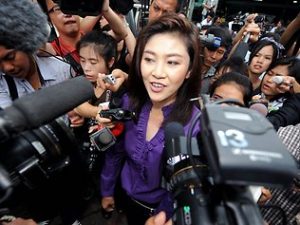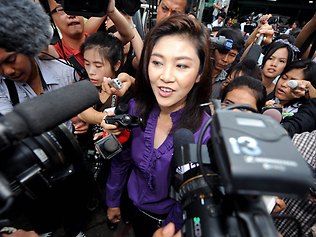Min Thuta, IMNA – Delegates from six Burmese ethnic parties observed Thailand’s most recent election this past Sunday.

Twelve delegates from Karen, Chin, Mon, Rakhine, and Shan organizations, as well as the National Democratic Font (NDF),surveyedthe Thai Election Commission and Parliamentary Office on election day after arriving in Bangkok, said an observer.
“The elections in Thailand and in our country are very different, like oil and water. Thai people have experience throughout their lifetimes with elections. Our country is so far away from the last election in 1960, now more than half a century. The 1990 and 2010 elections were undermined by the Burmese military. They were not elections to determine democracy,” said the observer.
The Thai Election Commission is organized directly by parliament with independent professionals, and does not include members of political parties or the Thai authorities, a Thai Election Commission representative explained to the delegates from Burma.
The Thai Election Commission cooperated with the Royal Thai Police, Thai Television, and electronic administrative agencies to announce nationwide vote results on the same day as the elections.
The delegates also met with current Prime Minister Abhisit Vejjajiva.
“The current prime minister said that one important point is that his country will not emerge with good results for national reconciliation after this election is finished,” said a delegate.
More than half of the candidates from the Pheu Thai Party were successful in the election, with Thai media reporting that Yingluck Shinawatrais set to become the first female Thai prime minister.
There were 90, 854 voting stations throughout the entire country during the election. There were about 40 political parties those involved in the elections, and Pheu Thai Party and Democrat Party are the most political parties.
Thailand has held a democratic political system for over 60 years, under the patronage of the Royal Thai King, and the current constitution provides that Thailand must hold elections every four years.
500 people’s representatives will be elected to parliament. The voters need to elect 375 representatives from 375 constituencies and the remaining 125 representatives are elected from party lists of political parties based on the number of votes in the elections. Thailand’s election uses both a ‘direct representative voting’ system and a ‘proportional voting’ system.
Min Thuta is a freelance news writer to Independent Mon News Agency.

